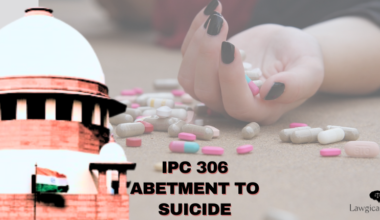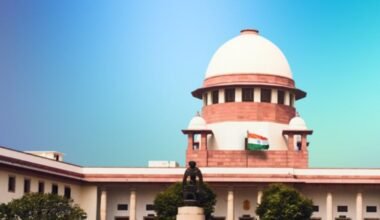General Power of Attorney – A legal document with the purpose to authorize one on behalf of another to make decisions and take actions, otherwise responsibility of the principle. While the document mostly looks like a contract of agency, it has been used for buying and selling property. But what happens when the Principal dies? What happens to the validity of GPA after the death of a Principal? The question has been addressed by the Supreme Court in landmark judgment in MS Ananthamurthy v. J. Manjula (2025 INSC 273). The Bench of Justice JB Pardiwala and Justice R Mahadevan cleared the clouds of confusion regarding the effect of death on power of attorney. Let’s have a look at the landmark judgment here.
Factual Understanding
The matter pertains to a plot in Bangalore. The said plot was sold by the original owner in 1986 by executing an irrevocable power of attorney and an unregistered agreement to sell. The said owner died in 1997. In 1998, the GPA holder executed a registered sale deed for the said plot in favour of his son, while the heirs of the original owner also registered a sale deed in 2003 which was subsequently sold to another. A visit to the said plot disclosed about the dispute regarding who actually owned the said property. The parties approached the Court, the legal heirs claiming their stand, while GPA holders stating themselves as the owners. Everything depended upon the validity of GPA after death of Principal, that is the original owner of the said plot.
Issues on Validity of GPA after death
The main issue in this case arose due to transfer of a common property through two different parties – one authorized through GPA, and the others being legal heirs, through succession. The main question surrounds the validity of GPA after death of the principal, the one who executed Power of Attorney.
Is General Power of Attorney valid after death?
Analysis of GPA Law
The Court first looked at the law through which a power of attorney derives its validity. Chapter X of the Contract Act and Sections 1A and 2 of the Powers of Attorney Act, 1882 lay about agency. It expressed that “power of attorney in the nature of contract of agency authorizes the holder to do acts specified by the executant, or represent the executant in dealings with third persons.”
The Court pressed upon Illustration to Section 202 of Contract Act, wherein there was interest vested in the subject-matter of agency. Therefore, the facts restricted termination of agency by insanity or death. The said interest goes beyond the advancement of remuneration or commission. The Court even explained that a POA coupled with an interest metamorphosizes to an irrevocable agency, unless otherwise specified.
Nature of Power of Attorney
While looking at the essence of GPA, the Court stated that while construing a document, rather than going by the title, the Court is dutiful to see through the intention of parties gathered through the terms of the document. The said document in question must be seen as a whole. It further added that “The test to determine the nature of POA is the subject matter for which it has been executed.”
Revocable and Irrevocable Power of Attorney
While discussing the nature of GPA and the question of its validity, the Court sought to address the aspect of whether irrevocable power of attorney valid after death. The Court clarified that “a mere use of the word ‘irrevocable’ in a POA does not make the POA irrevocable. If the POA is not coupled with interest, no extraneous expression can make it irrevocable. At the same time, even if there is no expression to the effect that the POA is irrevocable but the reading of the document indicates that it is a POA coupled with interest, it would be irrevocable.”
Conclusion on Validity of GPA after death of Principal
Looking at the essence of Power of Attorney and the applicable laws, the Court concluded that the PoA holder could not be said to have an interest, since the GPA was not executed to effectuate security or to secure interest of the agent. The Court highlighted the settled law that the transfer of immovable property by way of sale can be done only through deed of conveyance. It added that an agreement to sell is not conveyance and does not confer ownership.
Looking at the instant case of MS Ananthamurthy v. J. Manjula, the Court reiterated that any document for transfer of interest in the property should have been compulsorily registered as per Section 17(1)(b) of the Registration Act. The Court further discouraged the practice of transferring an immovable property vide a GPA and agreement to sell. Since the PoA holder chose not to register agreement to sell executed by the original owner, the Court negated the validity of power of attorney after death. What can be concluded from this landmark judgment of Supreme Court regarding validity of GPA after death of Principal is that the GPA itself should reflect the intention of whether it would be revocable or irrevocable in essence.








